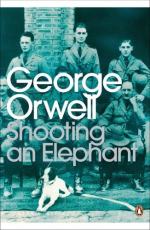|
This section contains 328 words (approx. 1 page at 400 words per page) |

|
Chapter 11 Summary
In essence, Orwell bemoans the absence of really interesting and intriguing contemporary murder literature. This, he postulates, is due to the fact that the prevalent type of crime is changing from what he feels are "perfect" murders to more mundane and non-memorable homicides. He mentions nine well-loved murder cases made into a plethora of literary renderings, novels to Sunday newspapers, from Jack the Ripper to Joseph Smith, and contrasts them with details of more recent lackluster accounts.
For a News of the World reader, Orwell describes the warmth and domestic comfort of a British Sunday afternoon, replete with fireplace and gastronome pleasures, brought to the height of well-being only by the reading of a good murder. A conceivable Orwellian outline of a compelling murder scenario might involve both a pitiable murderer and victim alike: a regarded local professional, seduced by lust or power...
(read more from the Chapter 11 Summary)
|
This section contains 328 words (approx. 1 page at 400 words per page) |

|




